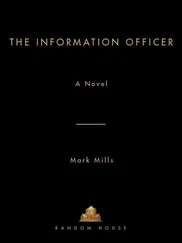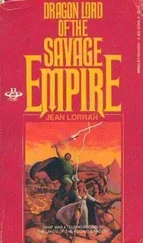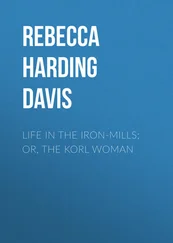Mark Mills - The Savage Garden
Здесь есть возможность читать онлайн «Mark Mills - The Savage Garden» — ознакомительный отрывок электронной книги совершенно бесплатно, а после прочтения отрывка купить полную версию. В некоторых случаях можно слушать аудио, скачать через торрент в формате fb2 и присутствует краткое содержание. Жанр: Старинная литература, на английском языке. Описание произведения, (предисловие) а так же отзывы посетителей доступны на портале библиотеки ЛибКат.
- Название:The Savage Garden
- Автор:
- Жанр:
- Год:неизвестен
- ISBN:нет данных
- Рейтинг книги:4 / 5. Голосов: 1
-
Избранное:Добавить в избранное
- Отзывы:
-
Ваша оценка:
- 80
- 1
- 2
- 3
- 4
- 5
The Savage Garden: краткое содержание, описание и аннотация
Предлагаем к чтению аннотацию, описание, краткое содержание или предисловие (зависит от того, что написал сам автор книги «The Savage Garden»). Если вы не нашли необходимую информацию о книге — напишите в комментариях, мы постараемся отыскать её.
The Savage Garden — читать онлайн ознакомительный отрывок
Ниже представлен текст книги, разбитый по страницам. Система сохранения места последней прочитанной страницы, позволяет с удобством читать онлайн бесплатно книгу «The Savage Garden», без необходимости каждый раз заново искать на чём Вы остановились. Поставьте закладку, и сможете в любой момент перейти на страницу, на которой закончили чтение.
Интервал:
Закладка:
It was hard to imagine Walter F. Peploe reciprocating the interest shown in him by "Nanny" as she appeared in the photographs— short, solid, and with the suspicion of a mustache—even if Signora Docci had strongly hinted at some kind of tryst between the pair.
One of the few photos with a handwritten caption showed her father gathered with a group of other European gentlemen, all dressed in evening wear and standing beside a billiard table at somewhere called the Harmonie Club in Batavia. He was one of only two men whose hair wasn't close-shorn. His dense, drooping mustache concealed his mouth and lent his face a grave mien, although his eyes suggested he was smiling, unlike his companions.
From the moment they arrived in Borneo, he was only ever to be seen in a white suit, usually worn with a black necktie. He was a slight and vaguely comical figure, even when brandishing a rifle over some dead animal. Signora Docci's mother stood a good half- head taller, and her ever-present parasol only accentuated the height difference, making her tower over him. Standing together in front of a surprisingly modern-looking bungalow, they looked more like two parties to a property sale than husband and wife.
There was a run of what appeared to be pointless photos taken from the ground looking up into the treetops. Closer inspection revealed spindly figures hanging from branches high above. Brought to earth, the orangutans were impressive creatures, even in death—far more impressive than Signora Docci's father or any of the grinning, sharp-featured natives invariably gathered around. One giant specimen, shaggy haired and barrel-chested, had been lashed by its wrists to the rail of a veranda, crucified for the camera. The vast span of its arms exceeded the height of the tallest man present by a good two feet. Its dislocated jaw animated its face. The unfortunate creature seemed to be giving a lopsided laugh at its own predicament.
Unsettled by the image, Adam skimmed the remaining pages. He closed the album, thought about replacing it, then removed the others and laid them on the floor in front of him. He could permit himself a quick look. There was still no sign of Maria, and Signora Docci was obviously sleeping late after her trying day.
There were four albums in total, each covering a two- or three- year period between the 1890s and the early 1920s. All were a testament to the privileged existence enjoyed by the Doccis. There were race meetings and open-topped roadsters and summer holidays at exclusive beachside hotels. There were walks in the Alps, trips in Venetian gondolas, and camel rides at the pyramids.
Adam flipped through the albums twice. The second time, he arranged them chronologically and studied the photographs more carefully. He watched Signora Docci grow from a gawky teenager into an elegant young woman, a wife, and finally a mother. It was the first time he had seen any photos of Emilio, and they contradicted his private theory that firstborn sons were generally shorter than their younger brothers. Emilio was lean and long-limbed from birth. Facially, he drew more from his mother, inheriting her large eyes and her broad, high cheekbones. These features, combined with his long neck, gave him a faintly startled air, which reminded Adam of something—he couldn't say what exactly— some kind of animal or bird. Maurizio was closer to his father in build and looks: broad-shouldered, square-jawed, with neat, even features. Adam searched for signs of Antonella in her girl-mother, Caterina. There were few, apart from the straight, lustrous hair and traces of the same devilish grin.
The very last photo was a studio portrait of the whole family taken in 1921 in Madrid. The women were seated on a sagging divan, the first soft creases of age also evident in Signora Docci's face. Caterina was seated to her left, glowering in sullen rebellion, a function of her thirteen or fourteen years, or maybe thrown into a mood by her bobbed hair, which didn't flatter her. The men stood behind: Benedetto—the paterfamilias, his hands gripping the back of the divan in a commanding manner—flanked by his two sons. Maurizio's forehead was stippled with adolescent acne. Emilio's hairline had already receded farther than his father's.
Adam stared at the photograph for quite a time. Something about it bothered him. It was a vague and impalpable sensation. This was enough, though, to make him remove the photograph from its gilt corner mounts. He replaced the albums, locked the cabinet door and made for the study.
He was still poring over the image a short while later when Signora Docci showed up. She entered the study from the back terrace, the approaching tap of her new cane buying him enough time to slip the photo beneath the desk blotter and grab a book lying nearby.
"Good morning," she said.
"Morning."
"Did you sleep well?"
"Yes," he lied.
"It must have been the strong sedative."
Adam smiled. "I enjoyed your stories. Really."
She was wearing walking shoes, dusty from use, and there was a wine bottle in her free hand.
"You've been out?" he asked.
"A walk. A good walk. It's nice to see."
"What?"
"They can't quite believe it—me, on my feet again. Maybe they're pretending, but they seem to be happy."
"I'm sure they're not."
"Pretending or happy?"
He smiled.
She placed the bottle of wine on the desk. "For your lunch with Antonella. You haven't forgotten, I hope." "No."
"It's from the cellar—good wine, not our own, don't worry."

He shed the tie as he entered the garden through the yew hedge. The jacket followed when he reached the base of the amphitheater. He opened the notebook and pulled out the photograph of the Doccis, gazing up at Flora on her pedestal, calling on her to help him.
He felt foolish appealing to a lump of stone, but he had brought the photograph with him for a reason. Why deny it? There was something about the garden that made him view the world differently, even act differently. He could feel it now, some kind of energy within him—not anger, not defiance, but something close, something else. Whatever it was, it had been responsible for his blurting out the stuff about fratricide to Maurizio, he knew that, just as he knew that what he'd seen in Maurizio's eyes was the cold clutch of fear, of guilt.
Ten minutes later there were two cigarette stubs on the stone bench, and the photograph was still mocking him. He left abruptly, frustrated, making for the bottom of the garden, opting for the pathway that ran through the woods via the glade of Adonis.
A light breeze rustled the leaves high overhead, the first hint of wind in almost a week. The grateful shade fell away as he entered the clearing, the high noonday sun beating down on the circular patch of pasture. He made for the statue at its center.
Venus was frozen in the act of stooping toward her dead love, reaching for him with her left hand. Adonis lay sprawled on his back, limbs splayed, eyes closed, his mouth agape, as if some dreadful cry had died on his lips with his last breath. He was still clutching his bow, the weapon that had failed to protect him against the wild boar while he was out hunting. The file compiled by Signora Docci's father only made mention of a wild animal. Ovid himself had been more specific: Adonis was gored to death by a wild boar.
He was pleased he'd gone to the source. Maybe there was some kind of symbolic association with the Docci family. A boar figured prominently in their coat-of-arms.
A noise drew his gaze from the statue. The treetops ringing the glade were being swept by a hurrying little breeze. It rose quickly to become a wind, firm and steady. The treetops swayed like drunken lovers on a dance floor. Then they dipped their heads in unison before a sustained gust, and a few moments later the wind fell to earth, patting down the parched grass and tousling Adam's hair with its warm hand.
Читать дальшеИнтервал:
Закладка:
Похожие книги на «The Savage Garden»
Представляем Вашему вниманию похожие книги на «The Savage Garden» списком для выбора. Мы отобрали схожую по названию и смыслу литературу в надежде предоставить читателям больше вариантов отыскать новые, интересные, ещё непрочитанные произведения.
Обсуждение, отзывы о книге «The Savage Garden» и просто собственные мнения читателей. Оставьте ваши комментарии, напишите, что Вы думаете о произведении, его смысле или главных героях. Укажите что конкретно понравилось, а что нет, и почему Вы так считаете.











